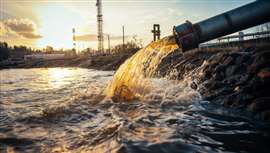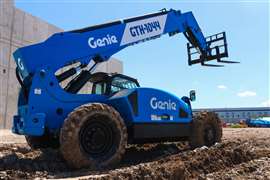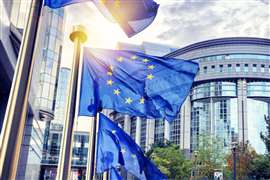Read this article in Français Deutsch Italiano Português Español
EFCA: Will EU institutions respond to the call for integrated water policy?
21 February 2024
In an era characterised by a rise in global extreme weather events, Europe is facing ever more serious challenges from the flood/drought paradox, as well as neglected infrastructure that can no longer cope with the status quo, let alone the climate emergency.
In the entire EU, beyond ensuring clean drinking water for citizens, an uninterrupted supply is also essential to European industries, playing a vital role in industrial processes. It also has an impact on energy supply, with power plants unable to function without it.
Here, we look at EFCA’s response to the European Economic and Social Committee (EESC) declaration on an EU Blue Deal, with the publication of our position paper expected before the end of this month.
Maintenance
Not covered sufficiently in the EESC declaration, maintenance of both supply and wastewater pipes has been neglected in many countries, with public authorities unwilling or unable to grant necessary investment.
Neglected water pipes have resulted in leakage, which affects about 25% of the EU’s total water supply. As we start to face more frequent shortages, it is crazy that so much water is literally running out of supply pipes, when it is needed for human and industrial consumption.
 Neglected water pipes have resulted in leakage, which affects about 25% of the EU’s total water supply (Photo AdobeStock AI)
Neglected water pipes have resulted in leakage, which affects about 25% of the EU’s total water supply (Photo AdobeStock AI)
Similarly, poorly maintained sewers have led to emergencies like fatbergs, which can cause hazardous and disruptive blockages and risks to health.
Such emergencies generate significant repair costs, which are avoidable with investment in infrastructure maintenance. Adopting a forward-looking perspective and strategic investment can help Member States and ultimately the EU, to avert dire consequences, ensuring industry resilience and citizens’ well-being.
Reinforcing nature’s own infrastructure
Beyond the maintenance of existing man-made water infrastructure, adopting nature-based solutions is imperative, to address the escalating flood and drought emergencies.
The urgency to tackle the never-ending flood-drought cycle calls for an expedited implementation of climate adaptation measures, with emphasis on a coordinated, nature-based approach.
Central to this strategy is capturing excess rainfall and floodwater, directing it to natural storage sites, and recycling it for adequate water supply during drier conditions, ensuring more stable year-round water levels.
Other solutions include using greywater from floods and rain for agricultural irrigation, recharging aquifers and toilet flushing. Treating domestic and industrial wastewater can save precious drinking water, and implementing such systems now is vital to avoid future stress on water supplies.
A fundamental shift in urban planning is also crucial, incorporating green infrastructure to transform cities into more absorbent entities, known as “sponge cities.” This facilitates groundwater replenishment and mitigates the heat island effect, reducing daytime temperatures and pollution.
Adapting urban planning to manage heavy rainfall requires collaborative efforts among planners, architects and engineers, creating innovative and resilient design.
Despite the Urban Wastewater Treatment Directive providing a framework for treating wastewater, the maintenance of water infrastructure remains a national responsibility.
A Blue Deal could push Member States to prioritise water infrastructure, ensuring measures and planning for the future sustainability of water resources.
Water and energy
Water plays a pivotal role in the broader landscape of energy availability, particularly as we combat climate change through, for example, offshore renewable energy sources. In this transition, potential solutions include tidal power, hydropower, offshore wind farms and offshore solar farms.
Each technology has unique advantages and disadvantages, demanding careful consideration of their application. Despite the potential of these renewables, a significant challenge is arising from the limited capacity of batteries for electricity storage, exacerbated by material shortages impacting battery production in the EU.
This raises genuine concerns about their long-term availability. Alternative approaches, such as using hydrogen and other molecules for transmission, present potential avenues to overcome this challenge but require substantial investment and technological development.
The recently released Wind Package has some synergy with an eventual Blue Deal. This package provides for collaborative efforts to improve the efficiency and sustainability of renewable energy.
EFCA spotlights deal
EFCA recognises the urgent need to cease our self-destructive overconsumption of depleting water supplies while addressing essential climate adaptation measures and further degradation of existing water infrastructure.
Although a Blue Deal could provide high-level policy support, the responsibility rests with engineers, industry, and the academic community to provide effective solutions that safeguard our water resources.
Follow our position, which supports the EESC and other calls for a Blue Deal. Other proactive action includes our 2024 Annual Conference in Madrid, the theme of which is an EU Blue Deal and its implications for European engineering consultancies.ce
STAY CONNECTED


Receive the information you need when you need it through our world-leading magazines, newsletters and daily briefings.
CONNECT WITH THE TEAM










